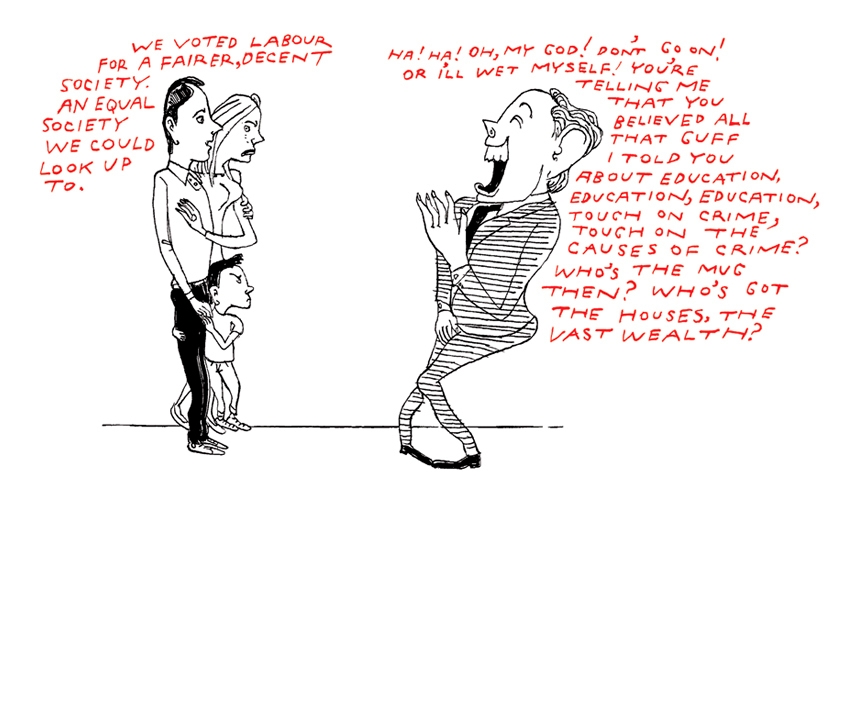Home
George Osborne, the Chancellor of the Exchequer, said in a speech in the City: ‘We have all had to revise down our short-term expectations over recent weeks.’ Industrial production for the United Kingdom fell by 0.2 per cent in July. House prices, according to the Halifax,
fell by 1.2 per cent from July to August.
The Dixons group reported a like-for-like fall in sales of 7 per cent against a year earlier. Twenty economists wrote a letter to the Financial Times saying that the 50p tax rate was inflicting ‘lasting damage’ on the British economy. Mr Osborne, and Eric Pickles the Communities Secretary, defended, in a joint article in the Financial Times, proposals to loosen the planning system in England, which had aroused hostility from the National Trust and the Campaign to Protect Rural England: ‘No one should underestimate our determination to win this battle,’ the politicians wrote.
•••
National Savings and Investments discontinued sale of its index-linked bond, which protects savers from the effects of inflation. One in four booking offices will close when the staff are removed from 675 railway stations under recommendations for saving money from Sir Roy McNulty, who the government asked to draw up an independent report on railway finances. The painting of the Forth Bridge was predicted to be completed by 9 December, with the latest coat of 50,000 gallons of paint not needing renewal for 25 years.
Basildon Council said that on 19 September it would evict 400 travellers from Dale Farm in Essex where 80 properties have no planning permission. Two former News of the World executives told the Culture, Media and Sport Committee that they had told James Murdoch, the chairman of News International, three years ago about evidence that phone hacking was not limited to one ‘rogue reporter’. Margaret Moran, the former Labour MP for Luton South, is to face 21 charges relating to her claims for expenses, the Director of Public Prosecutions announced. Burton Road in Eastbourne is Britain’s sunniest street, with 1,934.5 hours of sun a year.
•••
Abroad
A convoy of more than 50 vehicles full of armed supporters of Colonel Gaddafi, the deposed ruler of Libya crossed the country’s southern desert border into Niger, heading for the capital, Niamey. As for wGaddafi, Burkina Fasso said that it would not give him asylum. Representatives of Libya’s National Transitional Council negotiated with elders the peaceful handover of the town of Bani Walid, and then began negotiations over the city of Sirte. Abdel Hakim Belhaj, now the commander of the Tripoli Military Council, complained that in 2004, when he had been a member of the Libyan Islamic Fighting Group, a terrorist organisation connected to al-Qa’eda, he had been abducted by the CIA and returned to Libya, where he had been imprisoned and tortured. The role of MI6 in turning him in had been exposed by documents found in Tripoli belonging to Moussa Koussa, the former Libyan intelligence chief. David Cameron told parliament that the incident would be added to the inquiry by Sir Peter Gibson into the alleged torture of detainees.
•••
US and European shares fell in response to gloomy economic indicators. In America it was found that no new jobs had been generated in August. The strongest economy in the eurozone, Germany’s, suffered a decline in industrial orders in July. A court challenge to Germany’s bailing out other countries failed. Germany and France tried to resolve how Greece could continue to be bailed out. The Swiss franc rose rapidly in value as investors sought a safer place for their money, but Switzerland’s central bank said it would peg the franc to the euro, and undertook to buy however much foreign currency was required to achieve this. Saab, the Swedish car-maker, filed for bankruptcy protection. The town of Filettino, in the Italian region of Lazio, declared independence and started to print its own currency.
•••
The United Nations declared a sixth region of Somalia to be in a state of famine, and the number of people at imminent risk of death to 750,000. At least ten were killed when a bomb in a briefcase was set off outside the high court in New Delhi. The trial of Jacques Chirac on charges of corruption went ahead without him after his lawyers said he was suffering from anosognosia, a memory defect. Wildfires in Texas destroyed more than 1,000 houses.






Comments